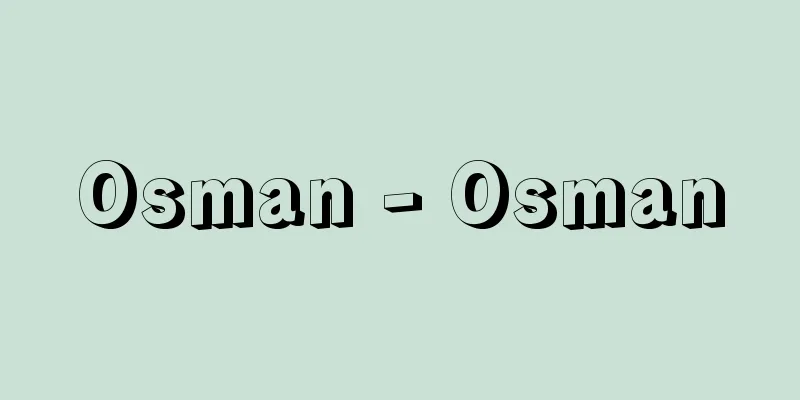Hayashi Baido

|
Year of death: September 1, 1666 (September 29, 1666) Year of birth: August 11, 1643 (September 23, 1643) A Confucian scholar and Chinese poet of the early Edo period. His name was Shunshin or Kaku, his literary name was Mengzhu, and he was commonly known as Matasaburo and Bentei, and later he was called Baido (Baikadoshu). He was the eldest son of Hayashi Gaho. He was born in Edo. Following the teachings of his grandfather Razan and uncle Yokkosai, he was gifted from an early age, and at the age of 12 he recited poetry with Korean envoys. After he came of age, he often assisted his father Gaho in selecting the "Honcho Tsūkan" (Chinese-style manuscripts), and was often invited by various feudal lords to give lectures on his father's behalf, and he also devoted himself to educating his family and disciples. He followed the Neo-Confucian school, and it has been pointed out that his poetry and prose were influenced by Laozi and Zhuangzi, but this is probably a lingering effect of the previous era, which expressed the freedom and liberation of the mind through Laozi and Zhuangzi. Perhaps because of his busy schedule, he died young despite the expectations. It is known that Gaho, in a state of grief, continued to write "Shikan Mingwa," a collection of anecdotes about Chinese poetry from the dynasty, which had been aborted by his beloved son. <Written Works> “The Complete Works of Professor Umedorin” (Miyazaki Shuta) Source: Asahi Japanese Historical Biography: Asahi Shimbun Publications Inc. About Asahi Japanese Historical Biography |
|
没年:寛文6.9.1(1666.9.29) 生年:寛永20.8.11(1643.9.23) 江戸前期の儒学者,漢詩人。名春信または愨,字孟著,通称又三郎,勉亭のち梅洞(梅花洞主)と号す。林鵞峰の長男。江戸生まれ。祖父羅山や叔父読耕斎の教えよろしく,12歳で朝鮮通信使と詩を唱和するなど,少時より才気に富む。成人してからは父鵞峰の『本朝通鑑』選定をよく助け,諸大名家にも招かれしばしば父に代わって講義し,家内門生らの教育にも意を用いた。朱子学を奉じ,詩文に老荘思想の影響も指摘されるが,それは精神の自由と解放を老荘をもって表現する前代の余韻であろう。多忙のためか期待されながらも早世。中絶した愛息の王朝漢詩逸話集『史館茗話』を,鵞峰が悲歎にくれながら書き継いだことは知られる。<著作>『梅洞林先生全集』 (宮崎修多) 出典 朝日日本歴史人物事典:(株)朝日新聞出版朝日日本歴史人物事典について 情報 |
>>: Haishi-so (Haishi-so) - Hayashinosho
Recommend
Takaaki Kimura
Year of death: November 1, 1742 (November 27, 1742...
Crane Trick - Crane Trick
...The wings have finely branched veins at the ti...
Basic Law of Jerusalem
...The fire at Al-Qasr Mosque, set by an Australi...
Artemisia schmidtiana (English spelling) Artemisiaschmidtiana
…[Hiroshi Aramata]. … *Some of the terminology th...
Guarneri - Guarneri (English spelling)
A family of Italian violin makers. The founder wa...
Scorpion fly (English spelling)
...The abdomen is cylindrical with a tapered post...
Ariake Reclamation
…After World War II, large-scale land reclamation...
Jones, AHM (English spelling)
…Alongside Weber and Rostovtsev, the Soviet Union...
Ribalta, J.de (English spelling) RibaltaJde
… His works include “The Musical Angel Comforting...
Sŏ Kyŏng‐dŏk (English spelling)
1489‐1546 A scholar of the Yi Dynasty of Korea. Hi...
amor fati (English spelling) amorfati
…Modern people may find this coexistence of fate ...
Common fishing rights
…Fishing rights arise when an administrative agen...
Bambuti
…Unlike the San, the Pygmies are also hunter-gath...
Sacrifice Festival - Kugisetsu
It is celebrated on the morning of the end of Ram...
Likeness - Nise
A portrait in the Yamato-e style. It became popul...









